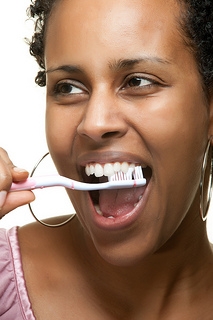Hot Day? Three Drinks to Leave Home When You’re Packing the Cooler
August 3rd, 2022

Whew! It’s a hot one! And whenever the temperature soars, you need to stay hydrated, especially when you’re outside or exercising. But all cold drinks aren’t equal when it comes to healthy hydration. Which beverages shouldn’t have a prime spot in your cooler when you’re wearing braces or aligners?
- Soft Drinks
You’re probably not surprised to find soft drinks at the top of the list. After all, sugar is a) a big part of what makes soda so popular, and b) not a healthy choice for your teeth.
Sugar is a favorite food source for the oral bacteria that make up plaque. These bacteria convert sugar into acids, and these acids attack the surface of your tooth enamel. Over time, the minerals which keep enamel strong begin to erode, and weakened, eroded enamel is a lot more susceptible to cavities.
So, what about sugar-free drinks? Does this make soft drinks a better choice? Unfortunately, you can take the sugar out of many sodas, but you can’t take the acids out. Most soft drinks are very acidic, even without sugar, and will cause enamel erosion just like the acids created by bacteria will.
- Fruit Drinks
Fruit juice provides us with vitamins, which is great, but it’s also full of natural sugars and acids. And blended fruit drinks and fruit punches often contain added sugars and added citric acids. Best to choose 100% fruit content and check the labels before you buy. (And you can always get refreshing fruit flavor by adding a slice of fruit to a glass of water.)
- Sports Drinks
You might be surprised to see these on the list—after all, they promise healthy hydration while you’re working out. And hydration is healthy—but sugars and acids aren’t. Even when the label tells you there’s no added sugar, that same label will often reveal high amounts of citric acid. In fact, some sports drinks are more acidic than sodas.
We’ll make an exception, though, for thirsty people who participate in sports or activities that require a lot of physical exercise and produce a lot of sweat. When we sweat, we lose electrolytes, those ionized minerals which help regulate many vital bodily functions. Talk to Dr. Welmilya Francis-Davis about which sports drinks are best for you if you need to replenish your electrolytes when working out.
So, what’s your best hydration choice on a hot day? Water! It not only hydrates you, it cleans your teeth, it helps you produce saliva, and it often contains tooth-strengthening fluoride. But if you only have sports drinks in the cooler, or if you just want to enjoy a soft drink or a bottle of juice from time to time, no need to go thirsty. We have some ways to make sure your teeth are safer, even with this tricky trio:
- Rinse with water after you drink a sugary or acidic drink. And remember to brush when you get home.
- Be choosy. Check labels for added sugars and acids.
- Don’t sip your drinks all day long. Saliva actually helps neutralize acids in the mouth, but sipping acidic beverages throughout the day doesn’t give saliva a chance to work.
- Use a straw to avoid washing your enamel in sugars and acids.
You need to keep hydrated when it’s hot. When you’re packing your cooler, choose drinks that are healthy for your entire body, including your teeth and gums. Ask our Nassau team for the best choices in cold drinks to make sure you’re getting the hydration you need—without the sugar and acids you don’t!




